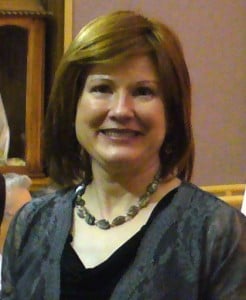 One of the most significant ways that our life with illness affects others is in providing guidance and influence over the next generation of patients, caregivers, and healthcare professionals. When I was first diagnosed with lupus, I didn’t consider this aspect of my “vocation.” I was, as many newly diagnosed people are, focused on my life, my illness, and my “little corner” of the world.
One of the most significant ways that our life with illness affects others is in providing guidance and influence over the next generation of patients, caregivers, and healthcare professionals. When I was first diagnosed with lupus, I didn’t consider this aspect of my “vocation.” I was, as many newly diagnosed people are, focused on my life, my illness, and my “little corner” of the world.
But, as days and years have passed, I’ve become more curious about how those younger are “coming up,” and how they are being molded by societal and individual attitudes. For example when we hear about how unfair and unjust the medical profession is, and how doctors and others are “in it for the money” and not for patient welfare, how does that influence young people to want to dedicate long, hard years of study to the medical profession? Does it inspire them? Encourage them? Or, deter them?
When “quick fixes” for medical problems are advertised so widely and loudly, what kind of influence does that have on young people when they experience the illness of a loved one, or their own illness, that lingers, draws on, and is chronically painful? Are they able to find determination to live well and in faith anyway? Or, do they become angry, disillusioned, and turn away from God’s hope and love?
Parental guidance is primary and vital in all ways, including helping children form healthy attitudes toward health. But, even if we’re on the outside, we can be part of the formation.
Several times, I’ve been asked to speak to groups of young people about what it’s like to live with a chronic illness, and how others can help. Through these workshops, I’ve learned that children naturally want to help. They have few biases about other people. They are naturally curious, too. As they get older, they form more personal ideas about the world, but they are still open, seeking. I try to remember this whenever I interact with young people, no matter how tired I am.
The future of healthcare resides, in great part, in laboratories and healthcare companies that develop and deliver care. But it lies in greater part with the people who will work in offices and hospitals and actually be the instruments of care. The more we help form, teach, and encourage those younger, the better off this world will be!
Blessings for the day,
Maureen
